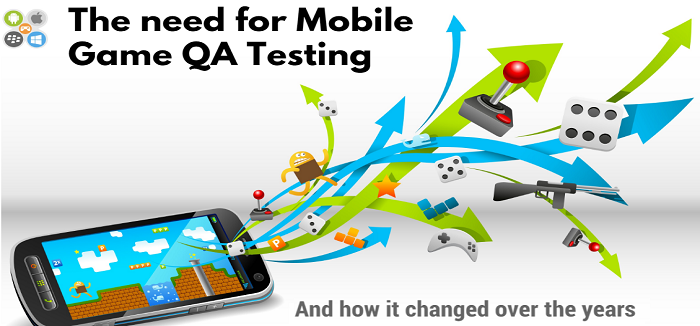
In case you are new to the topic game QA, it primarily refers to the quality assurance of a video game. In other words, after a video game is officially developed, one needs to be sure that the final product including all of the features is working as intended.
What Is Mobile Game QA And Who Is Responsible For It?
Now, the systematic and structured approach to this testing is known as video game testing. The mobile game testing, in reality, differs from the regular mobile app testing. All the agile processes, automated frameworks, and seamless integration are aspects that are quite different in the eyes of the mobile game QA testers – who work to identify any possible bugs and help developers to remove them efficiently.
However, the big picture with this topic is not the testing itself as a procedure, but the need for mobile game QA in general. It is true that the mobile game marketplace is growing as we speak, with over a million games and countless variations of them. However, most of all, mobile game testing takes place in a vibrant marketplace which is regularly updated, with iOS and Android as the main forces of these upgrades.
The Beginning Of Change
Most Apple fanboys and hopefully many of you still remember 29-June-2007 when the first generation iPhone was launched. Although the idea behind that device was to combine multimedia features of iPod and a typical mobile phone into one system, it was also the beginning of a new era in mobile gaming. With a robust platform of Apple, the developers soon started with numerous game launches, slowly transforming the looks and feel of old generation mobile games into console quality graphics. With many games launched in the App Store and high monetization tactics by Apple, other platforms like Android and Amazon also joined the race. Compatibility testing at the initial stage on such mobile platforms was no big deal for most game developers, especially due to the limited quantity of devices.
However, by the end of 2016, Apple has finished launching 34+ touchscreen devices with iOS in their heart, some having storage variants between 4 GB to 128 GB. That makes a huge number of uniquely configured devices from Apple alone, including iPhones, iPads, and iPod touch devices of various generations. Still, this number of iOS devices looks small when it comes down to arranging all of them to ensure smooth gameplay and overall compatibility of the game with devices of multiple generations. Nevertheless, by this time, numerous manufacturers across the globe, mainly from China, also manufactured myriad smartphones and tablets with Android as their pre-installed operating system. Testing any game for robustness on a huge number of Android devices is not feasible in most cases.
So the common idea used by developers is to only cover the devices popular in target geography for every game. There are few other ways around it but remain unexplored due to lack of proper guidance on the topic. Then there are first party updates in mobile operating systems for older as well as new devices, creating more tasks related to mobile OS compatibility testing for developers.
The Need For Continuous System Upgrades & How Mobile Game QA Fits Into It
Just because of the frequent launches of new hardware and operating systems, the need for mobile game QA testing has grown recently. As much as the quality, graphics, and gameplay get improved with every new upgrade, it is the actual testing that makes this possible and puts it into practice. There are various methods involved around it, including but not limited to arranging a variety of test devices for compatibility checks covering maximum possible target users, getting help from end-user communities across the globe, Beta testers, external QA agency, using middlewares, emulators and so on.
The bottom line is that mobile game validation does not relate anymore to just a simple process of running through basic gameplay and the features of a video game. Instead, it is a whole industry that relies on particular standards, procedures and systematic approaches, all to guarantee that the games played are of the highest quality possible.
The market for mobile games is still experiencing hyper growth but year 2016 was not without a struggle for mobile game developers. Need for quality apps in the crowded market with extreme competition is inevitable. The infusion of various Game Validation & QA services with the help of external teams or well-equipped game testing agencies can be paramount.
Article by,
Laxmikant B. Thipse
Founder & CEO
GameCloud Technologies Pvt Ltd
